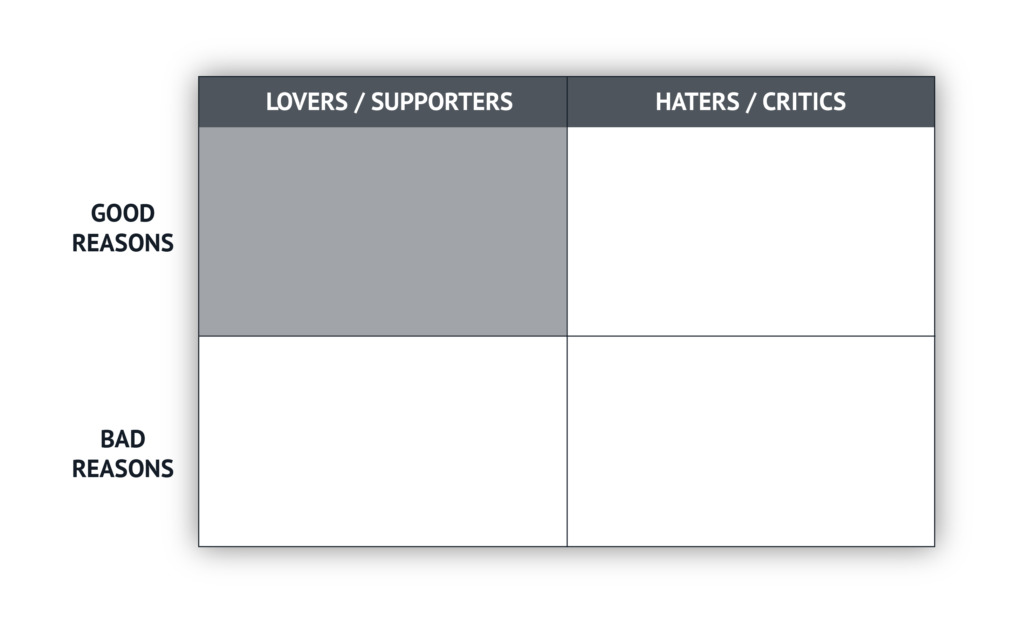So you watched the video? Now let’s go deeper into each group of people and talk through proper ways to prepare.

Just because they are critical, doesn’t mean that they’re wrong. So please respect your critics who bring up valid arguments. Greet these people with compassion, and be prepared for a conversation. Listen and validate their concerns.

It’s okay to ignore invalid criticism, and don’t waste your time trying to change their mind. Amidst a large, controversial decision, you have limited time. Move up the grid and spend that time with critics with good reasons to disagree with you. They deserve your attention and good answers to their questions.

Don’t be charmed by people who flatter you by default. This doesn’t validate your decision. These kind words will come your way whether you choose A or B.

This group believes in your reasoning behind your decision. They will be very discouraged, however, when others are not on the same page. Help them understand the difference between the two different groups who will be very critical.
But remember–this exercise isn’t about managing public opinion. It’s an exercise to assess what is motivating your decision. You have to be brutally honest here. It’s in your best interest to ask yourself the hardest questions:
“Am I just wanting more love from those who already support me?”
-or-
“Do I allow critics and my fear of retribution to influence my decision?”
Final Thoughts
I want to finish with a warning for any organization where “unconditional support” is the defacto norm. I’ve mentioned this before, in other blogs, but it’s these workplace cultures where authority can become useless (at best) and dangerous (at worst.)
People should be free to speak truth, especially when it’s unpopular.

